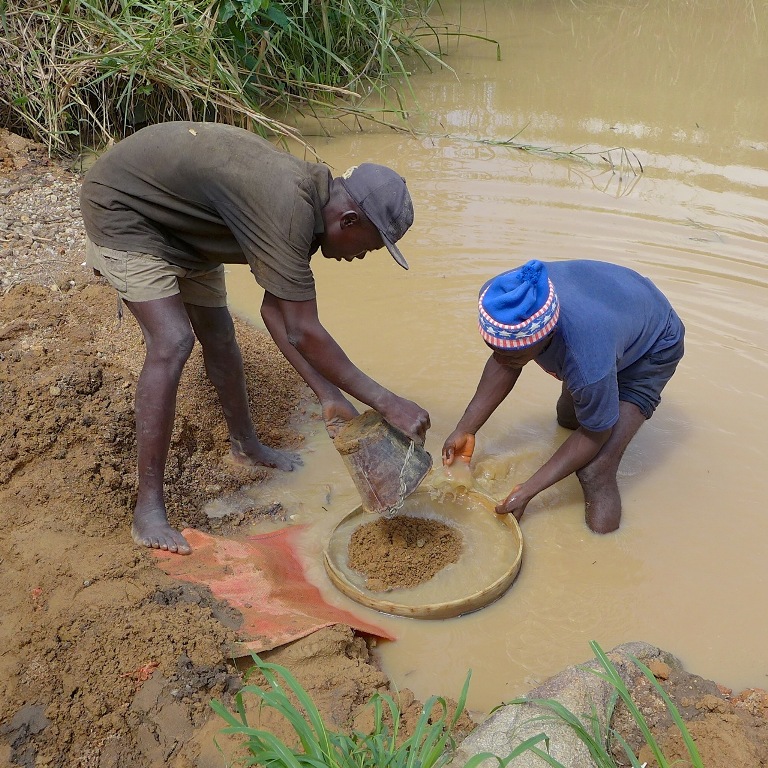Kono District in eastern Sierra Leone has the most productive mineral sector in the country, but revenue was not being invested in local development or in creating jobs. Mining was degrading the environment and local livelihood sources. The district was significantly affected by the 10 years of conflict and in 2013 Ebola’s outbreak made a dent in the region´s prospects. But community members, supported through an SDG Fund project, have succeeded in creating an agreement so that mining can benefit the communities.
The first ever Community Development Agreement in Kono was signed in Koidu town, the district´s capital, committing 0.25% of the mining company’s total export earnings to community development and the creation of livelihood sources. The agreement is not only expected to substantially reduce poverty rates, but also to alleviate tensions between the company and community.
Months of conversations led to this milestone, despite community challenges in conducting dialogue with corporate counterparts. The programme, implemented by UNDP and FAO, trained civil society organizations, NGOs, local councils, traditional local authorities, government and private sector, together with local media in how to conduct the dialogue. From an action plan, the Kono Civil Society Network (CSN) developed an advocacy plan that is now being implemented.
Paramount Chief Paul Ngabba Saquee V said, “this community-company arrangement brings high hopes as it will help to reduce the blame paramount chiefs receive in the communities for taking communities’ money, and for not being transparent or accountable.”
Community Development Agreements (CDAs) are required by law, and involve the allocation of revenue from extractive activities to local communities. They are negotiated between extractive companies and host communities at the outset to reduce risk of conflict later. However, the insufficient bargaining capacity of communities has led to imbalanced negotiations with the industrial extractive sector.
In this case, particular attention was given to provisions for youth employment and gender equality. For example, it was important to ensure that women were fully involved in the processes and that the specific needs of women, men, girls and boys were met when negotiating CDAs.
This landmark public-private collaboration is a wonderful example of how partnerships can contribute to poverty reduction.

Mapping land, building transparency
Through the programme, the two local councils in the district, the Kono District and Koidu New Sembehun City Councils are upgrading and enhancing the cadaster systems to enhance transparency and accountability in local income generation.
Building transparency and engaging community rebuilds social trust and confidence. More than one year into the project, in March a pastor discovered one of the world's largest uncut diamonds. Weighing 709 carats, this is largest diamond found in Sierra Leone since 1972. Emmanuel Momoh brought the diamond to the local authorities, and it is now in the hands of the Sierra Leone government. In the words of President Korama the owners should get "what is due to them" and it should "benefit the country as a whole”.






